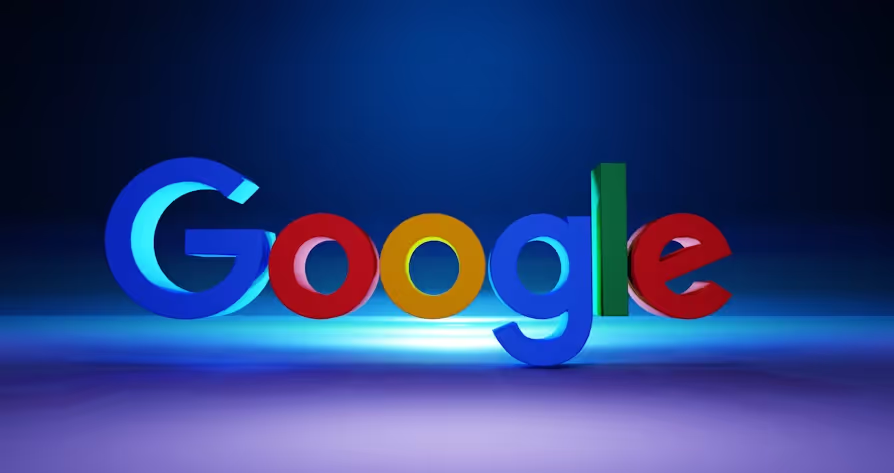Stay informed with our newsletter.
.webp)

.webp)

Google marks its 27th anniversary on September 27, 2025, celebrating an extraordinary journey from a small research project at Stanford University to the world’s most influential technology company. Over nearly three decades, Google has revolutionized the way we access information, communicate, work, and live. This article explores Google’s history, key milestones, innovations, cultural impact, and its vision for the future.

September 27, 2025, marks a remarkable milestone for Google its 27th anniversary. What began as a research project at Stanford University in the late 1990s has grown into one of the world’s most powerful and influential technology companies, shaping how billions of people live, learn, and connect every day. From a simple search engine to an expansive ecosystem of products and services, Google’s journey is a story of relentless innovation, bold vision, and global impact.
The story of Google started in 1995 when two Ph.D. students, Larry Page and Sergey Brin, met at Stanford University. In 1996, they began collaborating on a search engine project called Backrub, which analyzed the relationships between websites through backlinks. This unique approach allowed them to deliver more relevant search results compared to existing engines.
On September 4, 1998, Google was officially incorporated as a company in a friend’s garage in Menlo Park, California. However, over time, the company chose September 27 as its “official birthday,” aligning it with a major milestone in search indexing. This date has since become an annual celebration of Google’s legacy.
When Google launched, the internet was growing rapidly, but finding accurate and relevant information was still a challenge. Google’s search algorithm, PageRank, revolutionized the process by ranking pages based on their importance, relevance, and link structure.
By focusing on speed, simplicity, and quality results, Google quickly became the search engine of choice. Its clean, minimalist homepage set it apart from the cluttered portals of the time. Within a few years, “Googling” had entered everyday language as a verb a testament to its cultural impact.
While search was Google’s foundation, the company didn’t stop there. Over the years, it expanded its portfolio with a series of transformative products:
These products helped Google transition from a search engine to a comprehensive ecosystem that touches nearly every aspect of digital life.
One of Google’s greatest strengths has been its culture of experimentation and innovation. The company is famous for initiatives like the “20% time” policy, which allowed employees to spend a portion of their workweek on personal projects. This culture gave rise to products like Gmail and AdSense.
Google has also invested heavily in artificial intelligence (AI) and machine learning, applying these technologies across its products to improve user experiences. Whether it’s predictive search, language translation, image recognition, or smart assistants, AI has been a driving force behind Google’s evolution.
Google’s influence extends far beyond technology it has reshaped how societies access information, communicate, and make decisions. With tools like Google Search, Translate, News, and YouTube, billions of people rely on Google daily to stay informed, learn new skills, or express their creativity.
In developing regions, Google’s low-bandwidth solutions and Android devices have helped bridge the digital divide, empowering millions with access to information for the first time. Educational initiatives like Google for Education have also transformed classrooms worldwide, especially during the pandemic years.
With immense influence comes great responsibility and scrutiny. Over the years, Google has faced regulatory challenges, concerns over data privacy, monopoly practices, and content moderation. Governments and regulators around the world have debated the company’s power over information flow and advertising ecosystems.
To address these, Google has pledged to enhance transparency, improve user data controls, and collaborate with stakeholders on responsible AI development. Its decisions in these areas will shape not just its future but also the broader digital landscape.
As Google turns 27, its focus is firmly on AI, sustainability, and global impact. Under Alphabet Inc. (its parent company since 2015), Google continues to invest in ambitious projects:
The company envisions a future where technology not only provides information but also anticipates needs, assists in daily tasks, and supports human creativity responsibly.
From a garage startup to a global powerhouse, Google’s 27-year journey is nothing short of extraordinary. Its products and platforms have become embedded in everyday life, influencing how we search, learn, work, and connect.
As Google steps into its 28th year, the world will watch closely as it continues to shape the digital era, balancing innovation with responsibility, and ambition with ethical leadership. One thing is clear Google’s impact on humanity is far from over.
For questions or comments write to contactus@bostonbrandmedia.com
